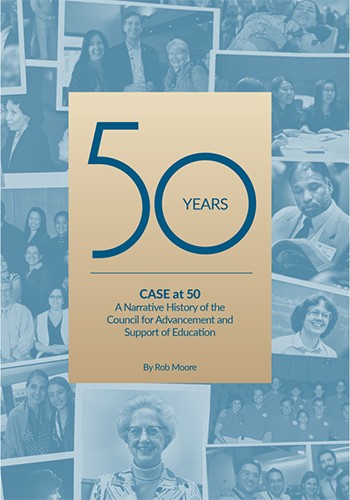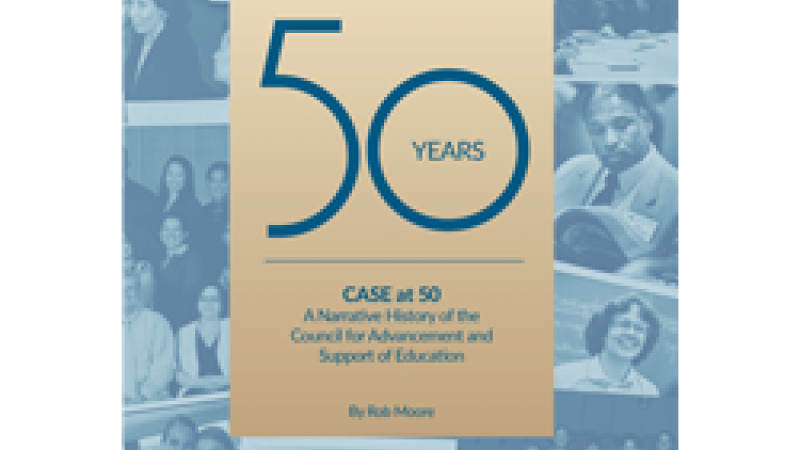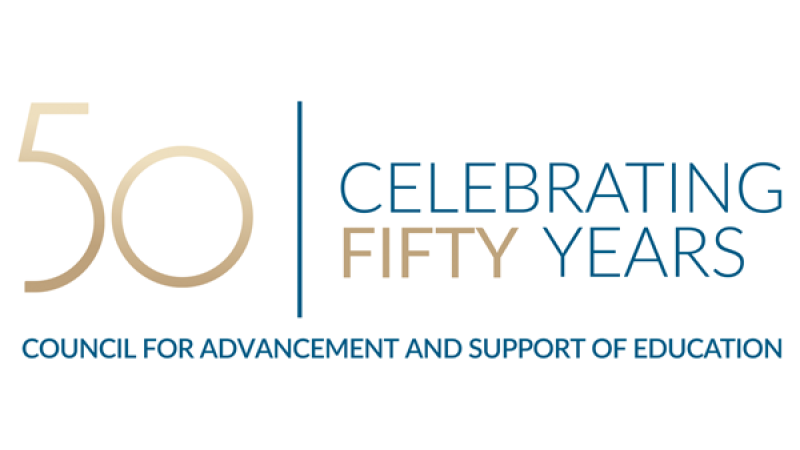CASE at 50

This is the third in our series of excerpts from CASE at 50: A Narrative History of the Council for Advancement and Support of Education. The book, commissioned by CASE and written by Rob Moore, highlights special moments and seminal stories from the organization’s first 50 years.
By the mid-1980s, a decade into its existence, CASE was taking steps toward a more international profile. It worked with the U.S. Information Agency and British Council to award Fulbright Fellowships to U.S. advancement professionals to serve terms at U.K. universities.
The story here is adapted from Chapter 6: Becoming.
William Squire recounts in University Fundraising in Britain how the Fulbright exchanges provided a foundation for institutions interested in developing greater advancement capacity by bringing to the United Kingdom “experienced professional(s) working in a field which was only slowly being recognised as a legitimate area of activity by university authorities in the U.K.” At the same time as senior advancement officers were venturing to the United Kingdom on Fulbright assignments, a small number of U.K. advancement professionals were journeying to the United States to visit successful university advancement operations and attend CASE conferences. These visitors “spread the word at grass roots in the U.K. about what U.S. experience could do to help the struggling professionals emerging in university fundraising.”
In Squire’s recounting of these early days, [Warren] Heeman [CASE Board Chair and Vice President for University Relations at St. Lawrence University] describes his experience while on a Fulbright in England: “I met with persons from many and varied institutions, some small and some large, some prestigious and some not, some with good fundraising potential … but all had in common a paucity of fundraising experience... ”
Recognizing that the situation would require a U.K. partner for CASE to ensure the initiative would succeed, the Conference of University Administrators sponsored a small gathering in 1989 on fundraising and university relations at the University of Nottingham. Thirty advancement professionals attended, eager to find ways to improve alumni and development programming in the United Kingdom by drawing on the U.S. experience. Growing out of this meeting was the first training program—“in CASE parlance, an institute”—in 1990 at the University of Edinburgh.
Most of those initial participants were brand new to advancement. Eventually word spread. That first conference had 100 registrants. A few years later, that grew to 500.
As is endemic at CASE conferences, all [participants] benefited from the opportunity to “meet and learn, not only from the speakers, but from other participants as well,” according to Squire. “Networking, though widely practiced, was then a barely recognised phenomenon and the whole conference generated an atmosphere where the CASE ethos of volunteerism and mutual self-help was dominant.”
The success of this initial conference led to further conferences, as well as a serious discussion among CASE Board and staff leadership about future activities in the U.K.
Share your CASE story, learn our history, and purchase CASE at 50 here.
Tags
Article appears in:

July - August 2024
Creating a Global Network: Dutch alumni teams extend their international reach. Also, meaningful donor and fundraiser relationships, meeting the mission at public regional universities, and connecting the pieces on a community college brand refresh.

